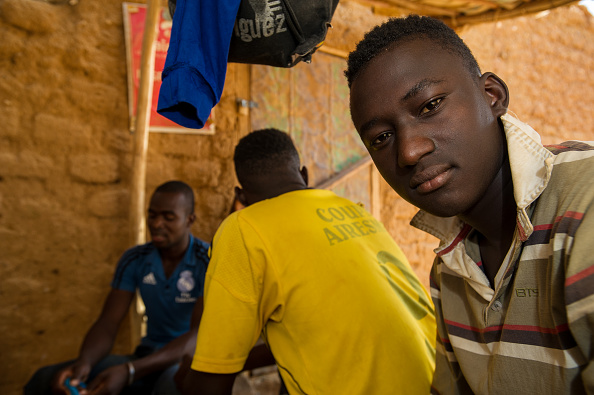Ireland has brought a new Hate Crime Bill into law but leading Irish gay and feminist advocates have said the new legislation was sloppily drafted and “threatens free speech and places our rights at risk”.
The Criminal Justice (Hate Offences) Act, which Irish President Michael D Higgins signed into law on October 29, defined gender as “the gender of a person or the gender which a person expresses as the person’s preferred gender or with which the person identifies and includes transgender and a gender other than those of male and female”.
Annaïg Birdy, co-founder of Not All Gays, told Brussels Signal: “Many lesbian, gay and bisexual citizens are concerned that this rushed and poorly defined legislation will undermine our rights and the clarity of legal protections moving forward.”
During debate on the bill in the Seanad (upper house), Senator Sharon Keogan spent 25 minutes reading a list of 72 genders which, under the bill, would gain legal status under law.
“Embedding these vague, self-declared identities into law,” said Birdy, “will inevitably erode protections for those with clear, observable characteristics, such as same-sex attracted individuals and women who rely on single-sex spaces for their safety and privacy.
“It will most certainly impact equality legislation,” she added, because “without a clear definition of sex, there can be no clear definition and therefore protections for same-sex attraction”.
While most European Union countries had transposed a 2008 EU hate-crime regulation into their domestic laws before the regulation’s deadline of November 28, 2010, Ireland did not.
Instead it, like Bulgaria and Estonia, had still failed to do this 14 years later, with each facing possible fines from the European Commission.
“Ireland is one of the last EU countries to implement hate crime legislation. This is why the European Union has opened infringement procedures against Ireland,” Berta Quiñonero from the Irish Network Against Racism (INAR) told Brussels Signal.
In 2022 INAR together with Ireland’s Coalition Against Hate Crime “released a communication expressing our frustration about the lack of members of the LGBTI+ community during the drafting of the Bill,” Quiñonero said.
Additionally, while there were five elements of EU hate crime regulation that Ireland needed to transpose into national law, the act only successfully managed to do so with one of those.
The EU criticised Ireland, along with Bulgaria and Estonia, for lacking legislation relating to crimes aggravated by hatred.
With the new hate crimes law in effect, Irish prosecutors could now add “aggravated by hatred” on to existing crimes such as “assault”.
While Ireland had now done one of its five bits of homework, there were, though, four other shortcomings in Irish law the EU also identified.
While it paid a great deal of attention to gender, Ireland’s Hate Crime Act did nothing to address these problems.
The act also included a definition of hate, which critics said was vague and could justify a crackdown on free expression, even though the EU had never required member states to define hate in national law. Most did not.
Among glaring defects in Irish criminal law that remained, according to the EU, was the lack of an offence of “incitement to violence”. A second was “incitement to hatred” against an individual.
While Irish law (under the Prohibition of Incitement to Hatred Act, 1989) addressed inciting hatred against groups of people, it did nothing to outlaw incitement to hatred against individuals.
The version of the legislation that passed the Dáil (lower house) included offences for both but justice minister Helen McEntee amended the legislation in the Seanad Éireann – the senate of the Oireachtas (the Irish legislature) to remove these references after they drew criticism.
A third shortcoming, said the EU, was an offence of “incitement to discrimination”, which other member states had included in their criminal law (Spain, for instance, against both groups and individuals) but Ireland did not.
A fourth shortcoming in Irish criminal law identified by the EU, that still remained was lack of an offence for defaming people on account of their religion or ethnicity.
Critics also noted the rushed way the Irish Government pushed through the legislation, just before a general election, which it planned to hold before the end of 2024. Independent TD Mattie McGrath called the law a “half-baked vanity project”.
The government originally scheduled the final vote for 10.10pm on 23rd October 23, which Birdy called “an unusually late hour for such a contentious issue”.
It was among five bills rushed through the Dáil in under six hours on the evening of October 23. The process normally takes several weeks.
Curtailing the debate in the Seanad “has further eroded any real semblance of thorough democratic process,” Birdy added.
The rushed legislation, “while being pushed in the name of protecting ‘LGBTQI’ people, will instead censor debate on critical issues within the extended acronym — debates and issues that the majority of politicians, as heterosexuals, may not be fully aware of”, she said.
“Let the record show that I, for one, as a lesbian and women’s rights defender, said ‘no’,” Birdy concluded.





